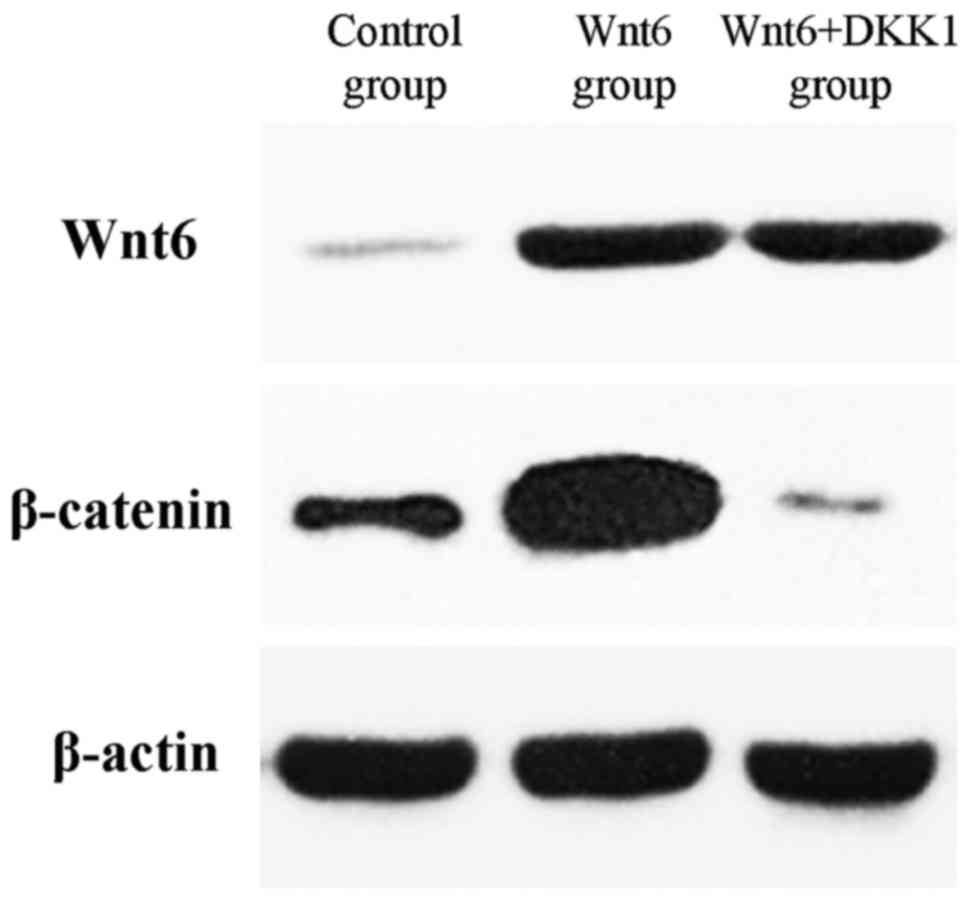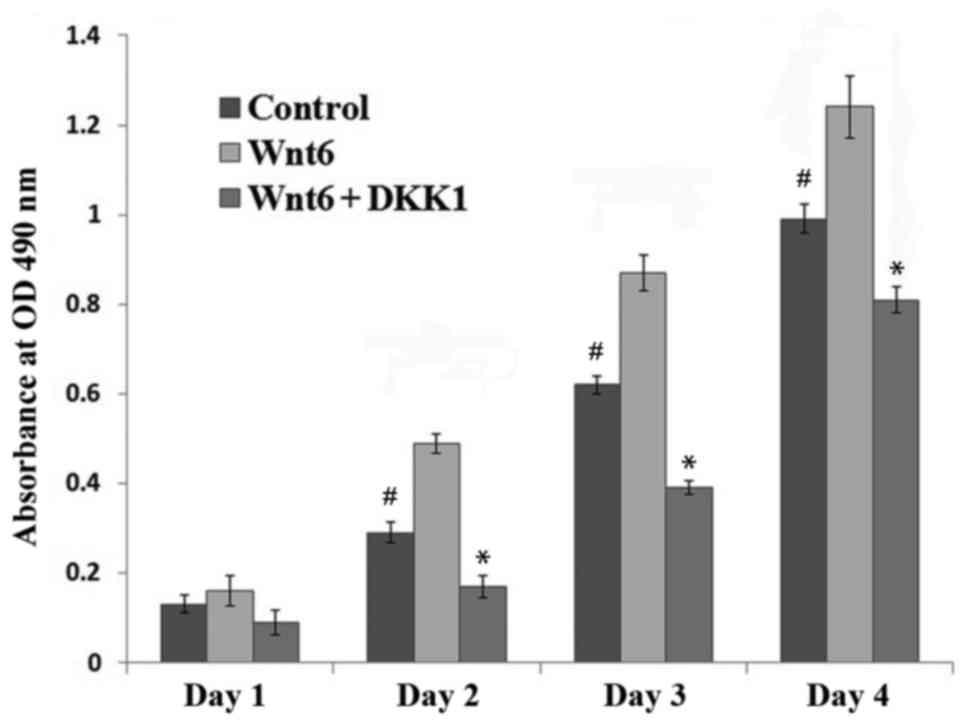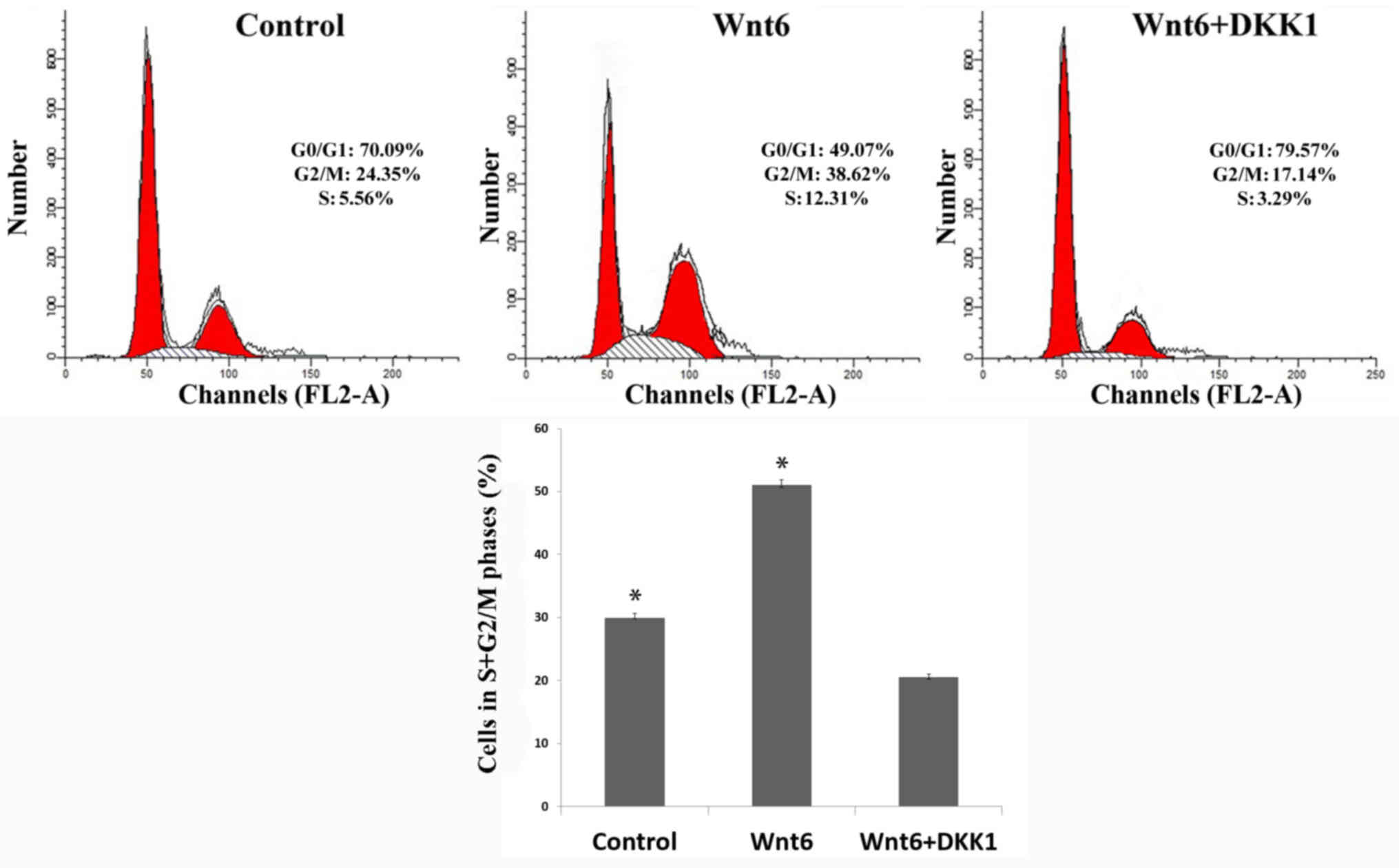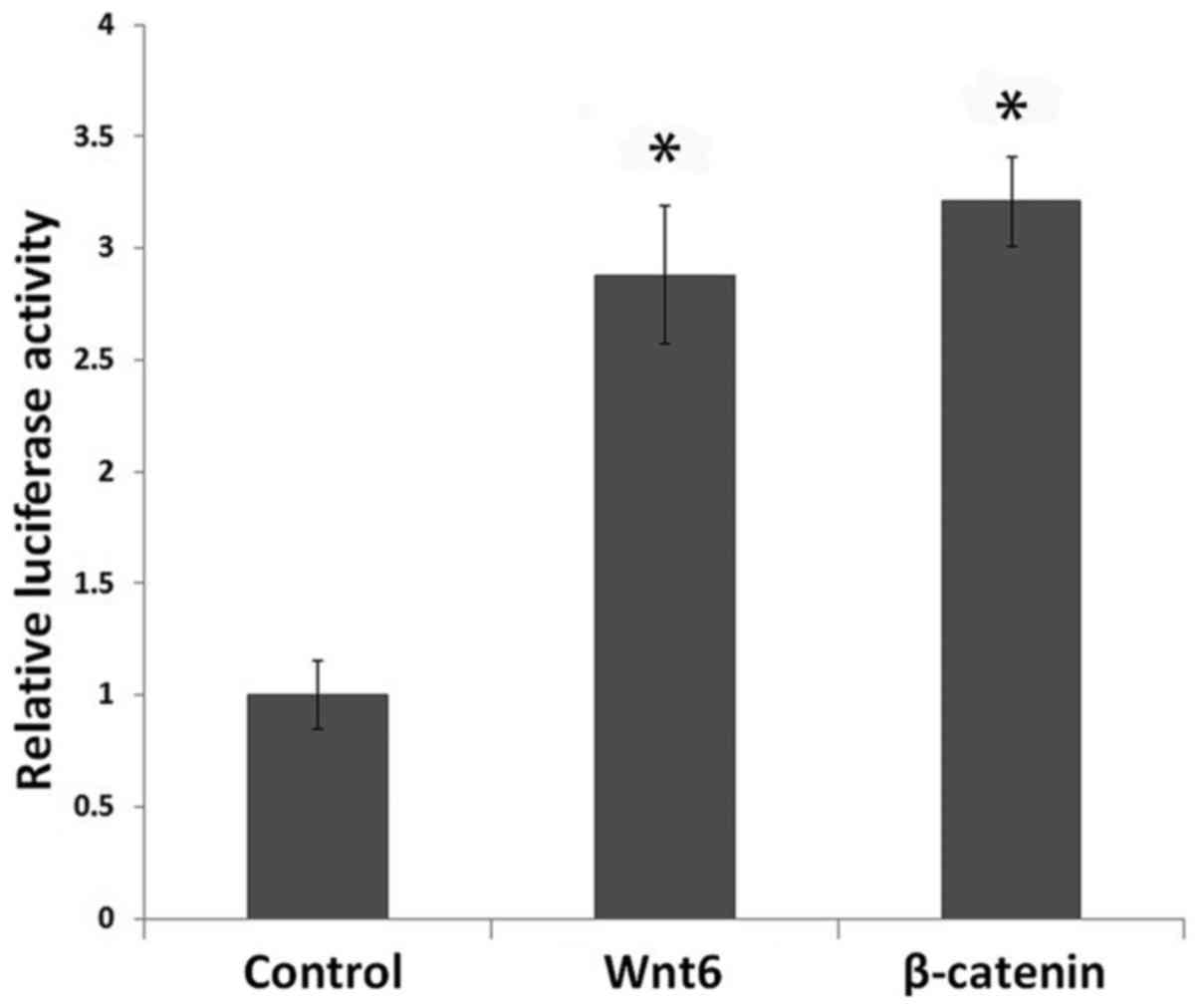|
1
|
Mossey PA, Little J, Munger RG, Dixon MJ
and Shaw WC: Cleft lip and palate. Lancet. 374:1773–1785. 2009.
View Article : Google Scholar : PubMed/NCBI
|
|
2
|
Fraser FC: The genetics of cleft lip and
cleft palate. Am J Hum Genet. 22:336–352. 1970.PubMed/NCBI
|
|
3
|
Schutte BC and Murray JC: The many faces
and factors of orofacial clefts. Hum Mol Genet. 8:1853–1859. 1999.
View Article : Google Scholar : PubMed/NCBI
|
|
4
|
Meng T, Shi JY, Wu M, Wang Y, Li L, Liu Y,
Zheng Q, Huang L and Shi B: Overexpression of mouse TTF-2 gene
causes cleft palate. J Cell Mol Med. 16:2362–2368. 2012. View Article : Google Scholar : PubMed/NCBI
|
|
5
|
Ferguson MW: Palate development.
Development. 103 Suppl:S41–S60. 1988.
|
|
6
|
Wu C, Endo M, Yang BH, Radecki MA, Davis
PF, Zoltick PW, Spivak RM, Flake AW, Kirschner RE and Nah HD:
Intra-amniotic transient transduction of the periderm with a viral
vector encoding TGFβ3 prevents cleft palate in Tgfβ3(−/-) mouse
embryos. Mol Ther. 21:8–17. 2013. View Article : Google Scholar : PubMed/NCBI
|
|
7
|
Meng L, Bian Z, Torensma R and Von den
Hoff JW: Biological mechanisms in palatogenesis and cleft palate. J
Dent Res. 88:22–33. 2009. View Article : Google Scholar : PubMed/NCBI
|
|
8
|
Feng C, Xu Z, Li Z, Zhang D, Liu Q and Lu
L: Down-regulation of Wnt10a by RNA interference inhibits
proliferation and promotes apoptosis in mouse embryonic palatal
mesenchymal cells through Wnt/β-catenin signaling pathway. J
Physiol Biochem. 69:855–863. 2013. View Article : Google Scholar : PubMed/NCBI
|
|
9
|
Li L, Shi JY, Zhu GQ and Shi B: MiR-17-92
cluster regulates cell proliferation and collagen synthesis by
targeting TGFB pathway in mouse palatal mesenchymal cells. J Cell
Biochem. 113:1235–1244. 2012. View Article : Google Scholar : PubMed/NCBI
|
|
10
|
Warner DR, Smith HS, Webb CL, Greene RM
and Pisano MM: Expression of Wnts in the developing murine
secondary palate. Int J Dev Biol. 53:1105–1112. 2009. View Article : Google Scholar : PubMed/NCBI
|
|
11
|
Warner DR, Mukhopadhyay P, Brock GN, Pihur
V, Pisano MM and Greene RM: TGFβ-1 and Wnt-3a interact to induce
unique gene expression profiles in murine embryonic palate
mesenchymal cells. Reprod Toxicol. 31:128–133. 2011. View Article : Google Scholar : PubMed/NCBI
|
|
12
|
Miller JR: The Wnts. Genome Biol.
3:REVIEWS30012002.PubMed/NCBI
|
|
13
|
Lee HY, Kléber M, Hari L, Brault V, Suter
U, Taketo MM, Kemler R and Sommer L: Instructive role of
Wnt/beta-catenin of in sensory fate specification in neural crest
stem cells. Science. 303:1020–1023. 2004. View Article : Google Scholar : PubMed/NCBI
|
|
14
|
Miki T, Yasuda SY and Kahn M:
Wnt/β-catenin signaling in embryonic stem cell self-renewal and
somatic cell reprogramming. Stem Cell Rev. 7:836–846. 2011.
View Article : Google Scholar : PubMed/NCBI
|
|
15
|
Kühl SJ and Kühl M: On the role of
Wnt/β-catenin signaling in stem cells. Biochim Biophys Acta.
1830:2297–2306. 2013. View Article : Google Scholar : PubMed/NCBI
|
|
16
|
Reya T and Clevers H: Wnt signalling in
stem cells and cancer. Nature. 434:843–850. 2005. View Article : Google Scholar : PubMed/NCBI
|
|
17
|
Staal FJ and Luis TC: Wnt signaling in
hematopoiesis: Crucial factors for self-renewal, proliferation and
cell fate decisions. J Cell Biochem. 109:844–849. 2010.PubMed/NCBI
|
|
18
|
Nusse R: Wnt signaling and stem cell
control. Cell Res. 18:523–527. 2008. View Article : Google Scholar : PubMed/NCBI
|
|
19
|
Moon RT, Bowerman B, Boutros M and
Perrimon N: The promise and perils of Wnt signaling through
beta-catenin. Science. 296:1644–1646. 2002. View Article : Google Scholar : PubMed/NCBI
|
|
20
|
Angers S and Moon RT: Proximal events in
Wnt signal transduction. Nat Rev Mol Cell Biol. 10:468–477.
2009.PubMed/NCBI
|
|
21
|
Jin YR, Han XH, Taketo MM and Yoon JK:
Wnt9b-dependent FGF signaling is crucial for outgrowth of the nasal
and maxillary processes during upper jaw and lip development.
Development. 139:1821–1830. 2012. View Article : Google Scholar : PubMed/NCBI
|
|
22
|
Jiang Z, Von den Hoff JW, Torensma R, Meng
L and Bian Z: Wnt16 is involved in intramembranous ossification and
suppresses osteoblast differentiation through the Wnt/β-catenin
pathway. J Cell Physiol. 229:384–392. 2014. View Article : Google Scholar : PubMed/NCBI
|
|
23
|
Hu X, Gao J, Liao Y, Tang S and Lu F:
Retinoic acid alters the proliferation and survival of the
epithelium and mesenchyme and suppresses Wnt/β-catenin signaling in
developing cleft palate. Cell Death Dis. 4:e8982013. View Article : Google Scholar : PubMed/NCBI
|
|
24
|
Hu X, Gao JH, Liao YJ, Tang SJ and Lu F:
Dexamethasone alters epithelium proliferation and survival and
suppresses Wnt/β-catenin signaling in developing cleft palate. Food
Chem Toxicol. 56:67–74. 2013. View Article : Google Scholar : PubMed/NCBI
|
|
25
|
Mostowska A, Hozyasz KK, Wójcicki P,
Lasota A, Dunin-Wilczyńska I and Jagodziński PP: Association of
DVL2 and AXIN2 gene polymorphisms with cleft lip with or without
cleft palate in a Polish population. Birth Defects Res A Clin Mol
Teratol. 94:943–950. 2012. View Article : Google Scholar : PubMed/NCBI
|
|
26
|
Schaale K, Brandenburg J, Kispert A,
Leitges M, Ehlers S and Reiling N: Wnt6 is expressed in
granulomatous lesions of Mycobacterium tuberculosis-infected mice
and is involved in macrophage differentiation and proliferation. J
Immunol. 191:5182–5195. 2013. View Article : Google Scholar : PubMed/NCBI
|
|
27
|
Hitchins L, Fletcher F, Allen S and Dhoot
GK: Role of Sulf1A in Wnt1- and Wnt6-induced growth regulation and
myoblast hyper-elongation. FEBS Open Bio. 3:30–34. 2012. View Article : Google Scholar : PubMed/NCBI
|
|
28
|
Wang Q, Lu J, Zhang S, Wang S, Wang W,
Wang B, Wang F, Chen Q, Duan E, Leitges M, et al: Wnt6 is essential
for stromal cell proliferation during decidualization in mice. Biol
Reprod. 88:52013. View Article : Google Scholar : PubMed/NCBI
|
|
29
|
Beaty TH, Hetmanski JB, Fallin MD, Park
JW, Sull JW, McIntosh I, Liang KY, Vanderkolk CA, Redett RJ,
Boyadjiev SA, et al: Analysis of candidate genes on chromosome 2 in
oral cleft case-parent trios from three populations. Hum Genet.
120:501–518. 2006. View Article : Google Scholar : PubMed/NCBI
|
|
30
|
Matsumura K, Taketomi T, Yoshizaki K, Arai
S, Sanui T, Yoshiga D, Yoshimura A and Nakamura S: Sprouty2
controls proliferation of palate mesenchymal cells via fibroblast
growth factor signaling. Biochem Biophys Res Commun. 404:1076–1082.
2011. View Article : Google Scholar : PubMed/NCBI
|
|
31
|
Thompson MD, Dar MJ and Monga SP:
Pegylated interferon alpha targets Wnt signaling by inducing
nuclear export of β-catenin. J Hepatol. 54:506–512. 2011.
View Article : Google Scholar : PubMed/NCBI
|
|
32
|
Kang YJ, Park HJ, Chung HJ, Min HY, Park
EJ, Lee MA, Shin Y and Lee SK: Wnt/β-catenin signaling mediates the
antitumor activity of magnolol in colorectal cancer cells. Mol
Pharmacol. 82:168–177. 2012. View Article : Google Scholar : PubMed/NCBI
|
|
33
|
An JH, Yang JY, Ahn BY, Cho SW, Jung JY,
Cho HY, Cho YM, Kim SW, Park KS, Kim SY, et al: Enhanced
mitochondrial biogenesis contributes to Wnt induced osteoblastic
differentiation of C3H10T1/2 cells. Bone. 47:140–150. 2010.
View Article : Google Scholar : PubMed/NCBI
|
|
34
|
Kim DY, Park YG, Quan HY, Kim SJ, Jung MS
and Chung SH: Ginsenoside Rd stimulates the differentiation and
mineralization of osteoblastic MC3T3-E1 cells by activating
AMP-activated protein kinase via the BMP-2 signaling pathway.
Fitoterapia. 83:215–222. 2012. View Article : Google Scholar : PubMed/NCBI
|
|
35
|
Mao B, Wu W, Li Y, Hoppe D, Stannek P,
Glinka A and Niehrs C: LDL-receptor-related protein 6 is a receptor
for Dickkopf proteins. Nature. 411:321–325. 2001. View Article : Google Scholar : PubMed/NCBI
|
|
36
|
Gordon MD and Nusse R: Wnt signaling:
Multiple pathways, multiple receptors, and multiple transcription
factors. J Biol Chem. 281:22429–22433. 2006. View Article : Google Scholar : PubMed/NCBI
|
|
37
|
Lhomond G, McClay DR, Gache C and Croce
JC: Frizzled1/2/7 signaling directs β-catenin nuclearisation and
initiates endoderm specification in macromeres during sea urchin
embryogenesis. Development. 139:816–825. 2012. View Article : Google Scholar : PubMed/NCBI
|
|
38
|
Krawetz R and Kelly GM: Wnt6 induces the
specification and epithelialization of F9 embryonal carcinoma cells
to primitive endoderm. Cell Signal. 20:506–517. 2008. View Article : Google Scholar : PubMed/NCBI
|
|
39
|
Hwang JT and Kelly GM: GATA6 and FOXA2
regulate Wnt6 expression during extraembryonic endoderm formation.
Stem Cells Dev. 21:3220–3232. 2012. View Article : Google Scholar : PubMed/NCBI
|
|
40
|
Lavery DL, Martin J, Turnbull YD and
Hoppler S: Wnt6 signaling regulates heart muscle development during
organogenesis. Dev Biol. 323:177–188. 2008. View Article : Google Scholar : PubMed/NCBI
|
|
41
|
Cawthorn WP, Bree AJ, Yao Y, Du B, Hemati
N, Martinez-Santibañez G and MacDougald OA: Wnt6, Wnt10a and Wnt10b
inhibit adipogenesis and stimulate osteoblastogenesis through a
β-catenin-dependent mechanism. Bone. 50:477–489. 2012. View Article : Google Scholar : PubMed/NCBI
|


















